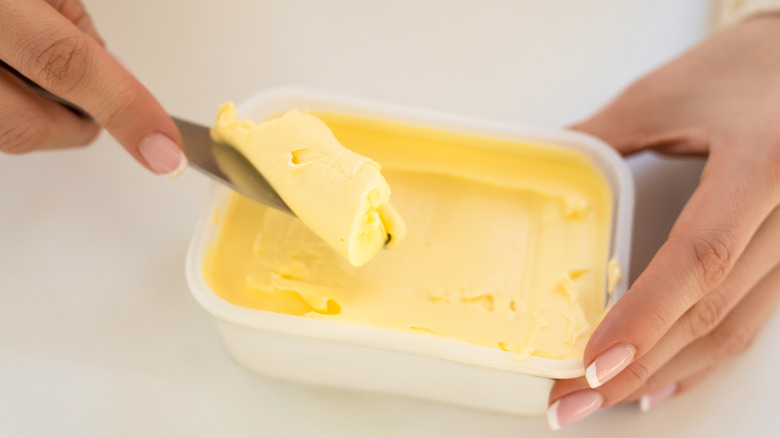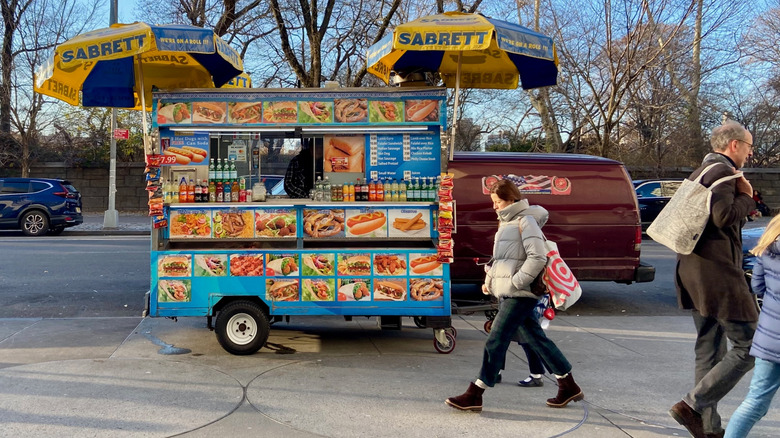The Old-School Law That Required All Margarine To Be Pink
From farm-fresh egg labels that don't mean anything to a Georgia fried chicken law prohibiting the use of forks, history is packed with all sorts of weird rules about food. But among the strangest was an 1891 ruling in New Hampshire requiring that margarine be dyed pink.
When margarine first came to the US in 1870, it had established players in the dairy industry worried. It was a viable butter substitute and had great market appeal if it were dyed yellow rather than its natural white. Over time, 32 states banned the dyeing of margarine, but New Hampshire took the idea to a whole new level. In 1891, the state required that all margarine be dyed pink. Now, whether this was an attempt to make it clear to consumers that margarine was not butter or a collaboration with the dairy industry to make margarine unappealing is difficult to say definitively.
The effect of pink margarine was immediate, and many New Hampshire citizens stopped buying it. In 1898, the Supreme Court of New Hampshire finally struck down the law, citing pink's effect on customer appeal and upholding that margarine should simply remain its natural white. But this wouldn't be the last time seemingly odd laws around food production, selling, and service were passed, some of which persist well into the 2000s.
Other odd food laws in the U.S.
Whether you're producing food on a farm, hauling it cross-country, or serving it to diners in a cafe, there's serious money in getting people something to eat. Some of these laws are necessary even if they seem a bit silly on the surface, while others stick around to protect industries key to a state's local economy.
New York legally classifies hot dogs as sandwiches. While at first glance this seems like a gimmicky law capitalizing on the trend of debating what different foods are, such as Pop-Tarts being ravioli, this 2019 ruling by the New York Department of Taxation and Finance serves a purpose. If you aren't familiar with New Yorkers, they love their hot dogs. So much so that the state didn't want to lose out on potential tax revenue, so it was forced to classify them as sandwiches to enable a stable, uniform tax rate.
In a return to famously pink margarine, Wisconsin, the Dairy Land of America, still has a remnant of its old rulings in place as of 2025. Establishments, from restaurants to prisons, cannot serve margarine as a substitute for butter unless specifically asked to. This carries a penalty of up to $500 and/or three months in prison should someone violate the law. This comes as no surprise from the state responsible for over 30 million pounds of milk production in 2021 and remains a measure to protect its dairy industry.


